2016-2017 Series
September 29, 2016
Anton Wellstein, PhD
Deputy Director for the Center for Cell Reprogramming
Professor Oncology, Pharmacology and Medicine
Georgetown University Medical School
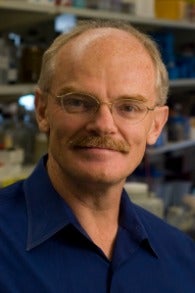
Dr. Anton Wellstein has been newly appointed as the Deputy Director for the Center for Cell Reprogramming. Dr. Wellstein has been involved with the Center since its inception and is the director of the GI biology program within the Center. He is currently the co-PI on an R33 NCI grant focused on Conditional Cell Reprogramming, and many of his laboratory pursuits involve the biology of cancer stem cells. His role is in helping guide the Center in defining future directions and collaborations, recruiting new faculty, and assisting with private and pubic foundation support. We are excited to have Dr. Wellstein assume this important new position within the Center and be the first speaker of our second Seminar Series.
October 13, 2016
James H. Doroshow, MD
Deputy Director for Clinical and Translational Research National Cancer Institute,
National Institutes of Health
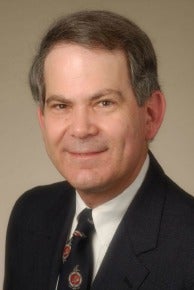
Dr. James H. Doroshow has been the Director of Division of Cancer Treatment and Diagnosis, National Cancer Institute, since 2004, and Deputy Director for Clinical and Translational Research of the National Cancer Institute since 2011. He is the author of over 400 full-length publications in the areas of reactive oxygen metabolism and oxidant signaling, anticancer pharmacology, and novel therapeutic approaches to solid tumors. Dr. Doroshow also oversees his own active laboratory program focusing on two lines of research: discovering the mechanisms that drive the anthracycline antibiotic cell death program, and understanding the role of oxidative signals in the development and treatment of solid tumors.
November 10, 2016
Judith Campisi, PhD
Professor, Buck Institute for Research on Aging Senior Scientist,
Lawrence Berkeley National Laboratory
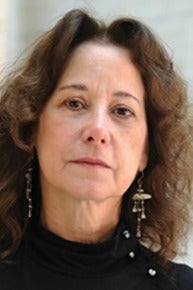
Dr. Judith Campisi has received international recognition for her contributions to understanding why age is the largest single risk factor for developing a panoply of diseases, ranging from neurodegeneration to cancer. Her highly acclaimed research integrates the genetic, environmental and evolutionary forces that result in aging and age-related diseases, and identifies pathways that can be modified to mitigate basic aging processes. Dr. Campisi also makes significant contributions to understanding why aging is the largest single risk factor for developing cancer. She is widely recognized for her work on senescent cells — older cells that have stopped dividing — and their influence on aging and cancer. Dr. Campisi is collaborating with many other research groups at the Buck Institute to examine other suspected influences of senescent cells on other diseases of aging. Her research is shedding light on anti-cancer genes, DNA repair mechanisms that promote longevity, molecular pathways that protect cells against stress, and stem cells and their role in aging and age-related disease.
December 8, 2016
Terry Lechler, PhD
Associate Professor Department of Cell Biology,
Duke University School of Medicine
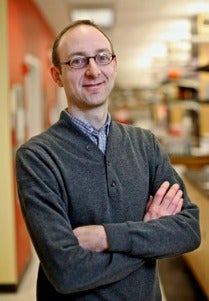
Terry Lechler received his bachelor’s degree from the University of Saskatchewan, Canada. His graduate work was performed in Rong Li’s lab at Harvard Medical school, where he studied mechanisms underlying cortical actin assembly and cell polarity. For his postdoctoral studies, Dr. Lechler joined Elaine Fuchs’ lab at Rockefeller University. His work there led to the discovery that regulated spindle orientations and asymmetric cell divisions drive the stratification and differentiation of the epidermis. Additional work laid the groundwork to understand how cytoskeleton reorganizes upon cell differentiation and the importance of this in tissue mechanics and function. In 2006, Dr. Lechler joined Duke University and established his lab. Since then, the Lechler Lab has made contributions to understanding both mechanisms and functions underlying asymmetric cell divisions, the role of actin nucleators in epithelial tissue physiology, and microtubule organization and function in the skin. The lab aims to understand how complex tissue architecture is established, the roles of the cytoskeleton and cell adhesions in tissue physiology/pathology.
Cancelled March 15, 2017
Steven Artandi, MD, PhD
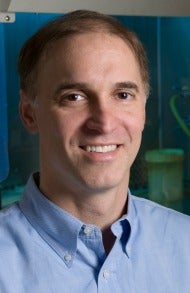
Dr. Artandi is the Jerome and Daisy Low Gilbert Professor of Medicine and Biochemistry at Stanford University School of Medicine. He earned an A.B in chemistry at Princeton University, and M.D. and Ph.D. degrees from Columbia University. Dr. Artandi completed residency training in internal medicine at Massachusetts General Hospital and his fellowship in medical oncology at Dana-Farber Cancer Institute at Harvard Medical School. He investigates fundamental questions in cancer biology and stem cell biology and how these processes are disrupted in human disease. Many diseases associated with tissue failure can be caused by germline mutations in telomerase genes and similar mechanisms may underlie many aspects of human aging. Dr. Artandi’s laboratory is using novel methods to discover new tissue stem cell populations with the goal of harnessing these cells to treat human disease. Dr. Artandi’s laboratory focuses on understanding the earliest stages in cancer development with the goal or preventing and treating many of the deadliest human malignancies. Dr. Artandi was elected as a Fellow of the American Association for the Advancement of Science, a member of the American Society for Clinical Investigation and the Association of American Physicians. He received Outstanding Investigator Award from the National Cancer Institute in 2015.
April 13, 2017
Danelle Devenport, PhD
Assistant Professor of Molecular Biology,
Department of Molecular Biology,
Princeton University
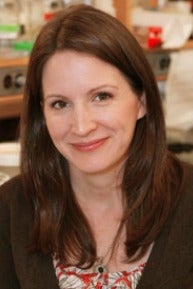
Danelle Devenport’s research focuses on how cells assemble into highly ordered structures to produce functional organs. Currently, she studies how directional signals instruct cells to organize cellular structures at specific positions and orientations across a tissue. This phenomenon, called planar polarity, can be found in nearly all epithelial tissues but is particularly striking in epidermal structures like scales, feathers, and hairs that are precisely and coordinately aligned over the entire surface of the vertebrate body. Using mammalian epidermis as a model system, she is dissecting the mechanisms of how cells ‘sense’ direction and coordinate cellular morphogenesis over long distances. In addition, she focuses on how highly regenerative tissues maintain their precise organization despite continuous proliferation and turnover. Danelle received her Ph.D. from the University of Cambridge in 2004 and was a postdoctoral fellow at The Rockefeller University until 2011. She holds an M.Sc. from the University of British Columbia and a B.S. from Humboldt State University in California.
Canceled May 18, 2017
Christopher Albanese, PhD
Professor, Departments of Oncology and Pathology
Georgetown University Medical Center
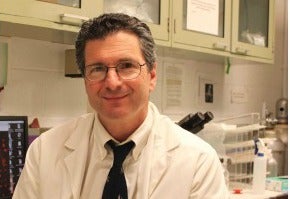
Dr. Christopher Albanese is a Professor in the Departments of Oncology and Pathology. He is also a member of the Molecular Oncology program. Dr. Albanese is the founder and Director of the Preclinical Imaging Research Laboratory and is the cofounder and is the Director of the Urogenital Program in the Center for Cellular Reprogramming. Dr. Albanese’s research focuses on the role of oncogenes and tumor suppressor proteins in the induction and maintenance of gentinourinary and other cancers, including malignancies of the GI track and brain. At Lombardi, Dr. Albanese is continuing programmatic development of novel preclincial models of human diseases, and the development of high-energy imaging technologies. Dr. Albanese also heads a multidisciplinary group of investigators whose initiative is to develop novel imaging-based clinical cancer therapies
